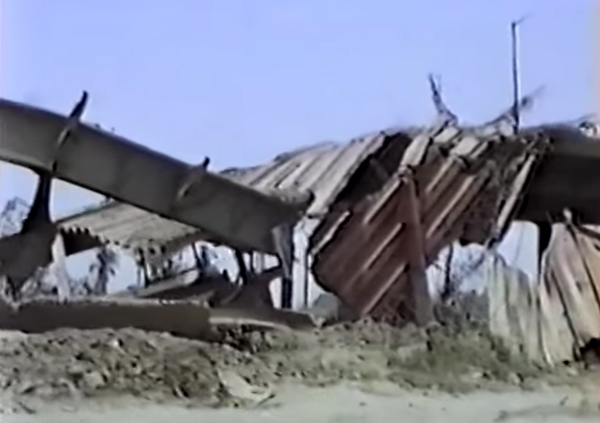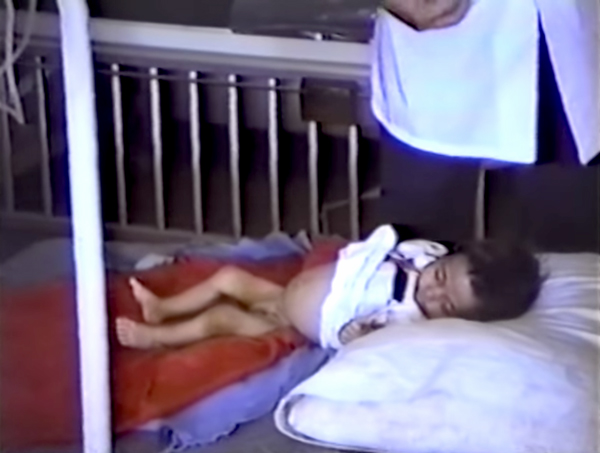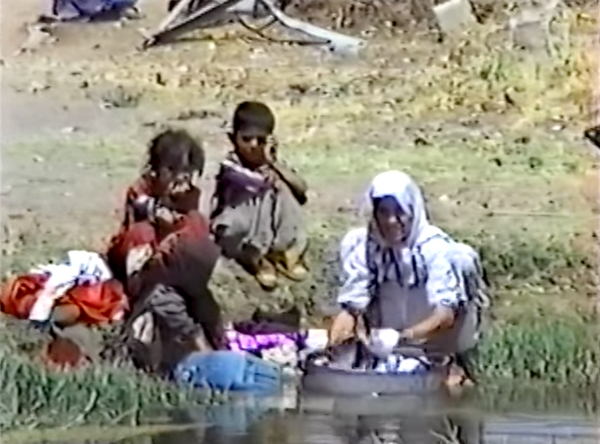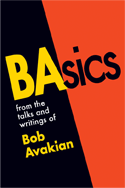Case #76: U.S.-UN Sanctions on Iraq—“A Legitimized Act of Mass Slaughter”
October 17, 2016 | Revolution Newspaper | revcom.us
Bob Avakian recently wrote that one of three things that has “to happen in order for there to be real and lasting change for the better: People have to fully confront the actual history of this country and its role in the world up to today, and the terrible consequences of this.” (See “3 Things that have to happen in order for there to be real and lasting change for the better.”)
In that light, and in that spirit, “American Crime” is a regular feature of revcom.us. Each installment will focus on one of the 100 worst crimes committed by the U.S. rulers—out of countless bloody crimes they have carried out against people around the world, from the founding of the U.S. to the present day.

A bridge in Iraq after the U.S. attack. The 1991 U.S. bombing destroyed much of Iraq's water, sanitation, and electrical infrastructure. After that came 11 more years of crippling economic sanctions that blocked needed imports such as medicine and chemicals to treat water.

1991–in a Baghdad hospital, one of hundreds of thousands of Iraqi infants suffering from diarrhea as a result of the destruction of the country's water and sanitation system.

A family in Iraqi Kurdistan washing clothes in polluted water, 1991. Before the 1991 Gulf War, 96 percent of Iraqis had access to abundant supplies of safe drinking water. Three years later less than half had such access.
All photos: Special to revcom.us
The Crime: From 1990 until 2003, the U.S. and the United Nations imposed crippling economic sanctions on Iraq, then ruled by Saddam Hussein. These sanctions began even before the U.S. destroyed much of Iraq’s infrastructure, including its electrical, water, and sewage treatment systems, during the January-March 1991 Persian Gulf War, and continued for more than a decade after the war ended. The results were catastrophic for millions of Iraqis, especially for the young, the sick, and the elderly.
Iraq depended on selling oil to buy needed imports of food and equipment for its industry and infrastructure. But U.S.-UN sanctions prevented this—both by preventing Iraq from selling enough oil and by blocking needed imports, often under the claim that they could be used by the military. Iraq’s economy was crippled, and it couldn’t fully repair its shattered electrical and water systems, or buy needed food and medicines. Even chemicals needed for treating water were being blocked.
The result was economic collapse, declining agricultural output (including due to lack of spare parts), widespread shortages of food and medicines, and most devastatingly a crisis of contaminated water.
Before the 1991 Gulf War, 96 percent of Iraqis had access to abundant supplies of safe drinking water. Three years later less than half had such access. In 1991, a UN team reported, “In Baghdad untreated sewage has now to be dumped directly into the river—which is the source of the water supply."
This led to an explosion of water-borne diseases—typhoid, cholera, and especially diarrhea which hit children the hardest. “Since the war Iraqi children have been exposed to biological warfare, massive biological warfare," Dr. Ameed Hamid, director of Iraq’s Red Crescent Society, summed up in the summer of 1991. “When you destroy the infrastructure of a country, sewage with all its germs will flow into the streets; you stop pure water from reaching the children; you give them malnutrition; you prevent medicines from reaching the country. So it’s an excellent environment for death and disease.”
Some children were caught in a vicious cycle: food shortages made them susceptible to disease, while diarrhea from contaminated water made it impossible to absorb the food they did consume, and the lack of medicines made it worse.
Death, disease, and suffering were inflicted on an enormous scale. In 1997, the UN reported that more than 1.2 million Iraqis had died since the beginning of the Gulf War as a result of medical shortages caused by the war and sanctions, including 750,000 children below the age of five.
A 1999 survey by UNICEF and Iraq’s Ministry of Health found that the rate of infant mortality among children under five living in south and central Iraq (where 85 percent of the population lives) had risen from 56 per 1,000 live births in 1984-1989 to 131 between 1994-1999—and was continuing to rise over time.
UNICEF’s estimate of the staggering death toll: 500,000 or more.
Iraqi children under five were dying at more than twice the rate they were before the Gulf War. That’s roughly 5,000 Iraqi children under five dying each month thanks to U.S. actions.
Denis Halliday, the UN Humanitarian Coordinator in Iraq from August 1997 until September 1998, called sanctions “a deliberate, active program—it’s not just negligence, it’s active—it’s a deliberate decision to sustain a program that they know is killing and targeting children and people. Then it’s a program of some sort, and I think it’s a program of genocide. I just don’t have a better word.”
The Criminals:
The administrations of presidents George H.W. Bush, Bill Clinton (including Hillary Clinton, a key player in his administration), and George W. Bush: President George H.W. Bush oversaw the imposition of sanctions, the launching of the 1991 war, and the continued enforcement of sanctions afterward. These punitive sanctions, as well as a stringent disarmament program and frequent military attacks, were continued under Bill Clinton and George W. Bush, even as their murderous impact was widely known.
The United Nations: Imposed sanctions on Iraq from 1990-2003.
U.S. Military and CIA: Planned and carried out the destruction of Iraq’s infrastructure and water and electrical systems. Declassified Pentagon studies revealed that U.S. military and intelligence agencies carefully studied Iraq’s water system ahead of time, assessed its potential weaknesses, predicted the catastrophic health impacts of disrupting it, and studied the means to prevent its reconstruction. The U.S. then went ahead and bombed Iraq’s electrical system, virtually shutting down its water and sewage treatment systems, while maintaining the sanctions that prevented its repair. The documents further show that U.S. government analysts tracked the resulting spread of disease.
The U.S. media: Played a crucial role in rationalizing, excusing, and covering up U.S. crimes. For instance, the New York Times, which helped spearhead Iraq coverage, editorialized on July 24, 1991: “To accept human suffering as a diplomatic lever is tormenting—but preferable to leaving the Persian Gulf allies with no credible way to compel Iraqi compliance but resuming military attacks... this is the wrong time to relax the embargo.”
In Their Own Words:
Leslie Stahl of 60 Minutes in 1996, asking about the impact of sanctions: “We have heard that half a million Iraqi children have died. I mean, that’s more children than died in Hiroshima. And—and you know, is the price worth it? Madeleine Albright, UN Ambassador under Bill Clinton:“I think this is a very hard choice, but the price—we think the price is worth it.”
Pentagon planner on U.S. strategy in 1991 war: People say, ‘You didn’t recognize that it was going to have an effect on water or sewage.’ Well, what we were trying to do with sanctions—help out the Iraqi people? No. What we were doing with the attacks on infrastructure was to accelerate the effect of the sanctions.”
THE ALIBI: U.S.-backed UN sanctions were imposed in August 1990 after Iraq invaded Kuwait. The declared purpose was to force Iraq’s military to withdraw. After the 1991 war, when Iraq withdrew from Kuwait, sanctions were continued under UN Resolution 687 with the stated objective of compelling Iraq to rid itself of chemical, biological, and nuclear weapons of mass destruction (and fulfill other UN resolutions). When Iraq disarmed, sanctions were to be lifted.
While the sanctions regime went through various phases, the U.S. consistently claimed the sanctions were not cruel, that humanitarian goods, including food, were being allowed into Iraq, and that sanctions would be lifted only if Hussein had complied with UN demands to disarm. In 2000 Bill Clinton said if Iraqis were hungry or lacked medicine, it was Saddam Hussein’s fault. And Bush II told the UN in September 2002: “Saddam Hussein has subverted this program, working around the sanctions to buy missile technology and military materials. By refusing to comply with his own agreements, he bears full guilt for the hunger and misery of innocent Iraqi citizens.”
THE ACTUAL MOTIVE: The U.S. claim that sanctions were aimed at compelling Iraq to disarm was a lie; they were aimed at crippling and overthrowing the Saddam Hussein regime. His continued rule was deemed a long-term threat to U.S. control of the Persian Gulf and broader Middle East, as well as a blot on its drive, after the collapse of the Soviet Union, to enforce its status as the world’s sole imperialist superpower. Sanctions were aimed at crippling the Hussein regime by preventing it from rebuilding its industry, economy, and military, and making life so miserable for the population it would trigger a military coup that would topple the regime. Robert Gates, Bush Sr.’s deputy national security advisor, admitted in 1991 that “Iraqis will be made to pay the price while Saddam Hussein is in power. Any easing of sanctions will be considered only when there is a new government.”
The U.S. also lied about Iraq’s compliance with its disarmament demands. Within six months of the end of the 1991 Gulf War, Iraqi weapons programs were being discovered and destroyed. Iraq may have destroyed all its weapons of mass destruction by the early 1990s, according to a high-level defector, and certainly by the late 1990s. In October 1998, the International Atomic Energy Agency certified that Iraq had provided it with a “full, final, and complete” account of its nuclear weapons programs, and that the agency had found no evidence of any prohibited nuclear activities since October 1997. A similar report was issued by the UN a year later on Iraq’s chemical and biological weapons programs. In other words, Iraq was disarmed and the U.S. rulers knew it. This is why the U.S. found no weapons after the 2003 invasion.
Yet sanctions were continued under Bill Clinton and George W. Bush despite the fact that the Iraqi people were knowingly being tortured and killed by their impact. Fairfield University professor Carol Joy Gordon concluded that the U.S. government turned UN sanctions into “a legitimized act of mass slaughter.”
Sources:
Larry Everest, Oil, Power & Empire: Iraq and the U.S. Global Agenda (Common Courage 2004), Chapters 5, 6, 7
Thomas Nagy, “The Secret Behind the Sanctions: How the U.S. Intentionally Destroyed Iraq’s Water Supply,” The Progressive, September 2001
Joy Gordon, “Cool War: Economic Sanctions as a Weapon of Mass Destruction,” Harper’s, November 2002
UNICEF and Government of Iraq Ministry of Health, “Child and Maternal Mortality Survey 1999: Preliminary Report,” July 1999 (www.unicef.org)
“Punishing Saddam,” CBS, 60 Minutes, May 12, 1996
"Iraq Under Siege," The Tech, May 5, 2000
Volunteers Needed... for revcom.us and Revolution
If you like this article, subscribe, donate to and sustain Revolution newspaper.









